A New Way of Life: THE PROMISED LAND and THE MONK & THE GUN
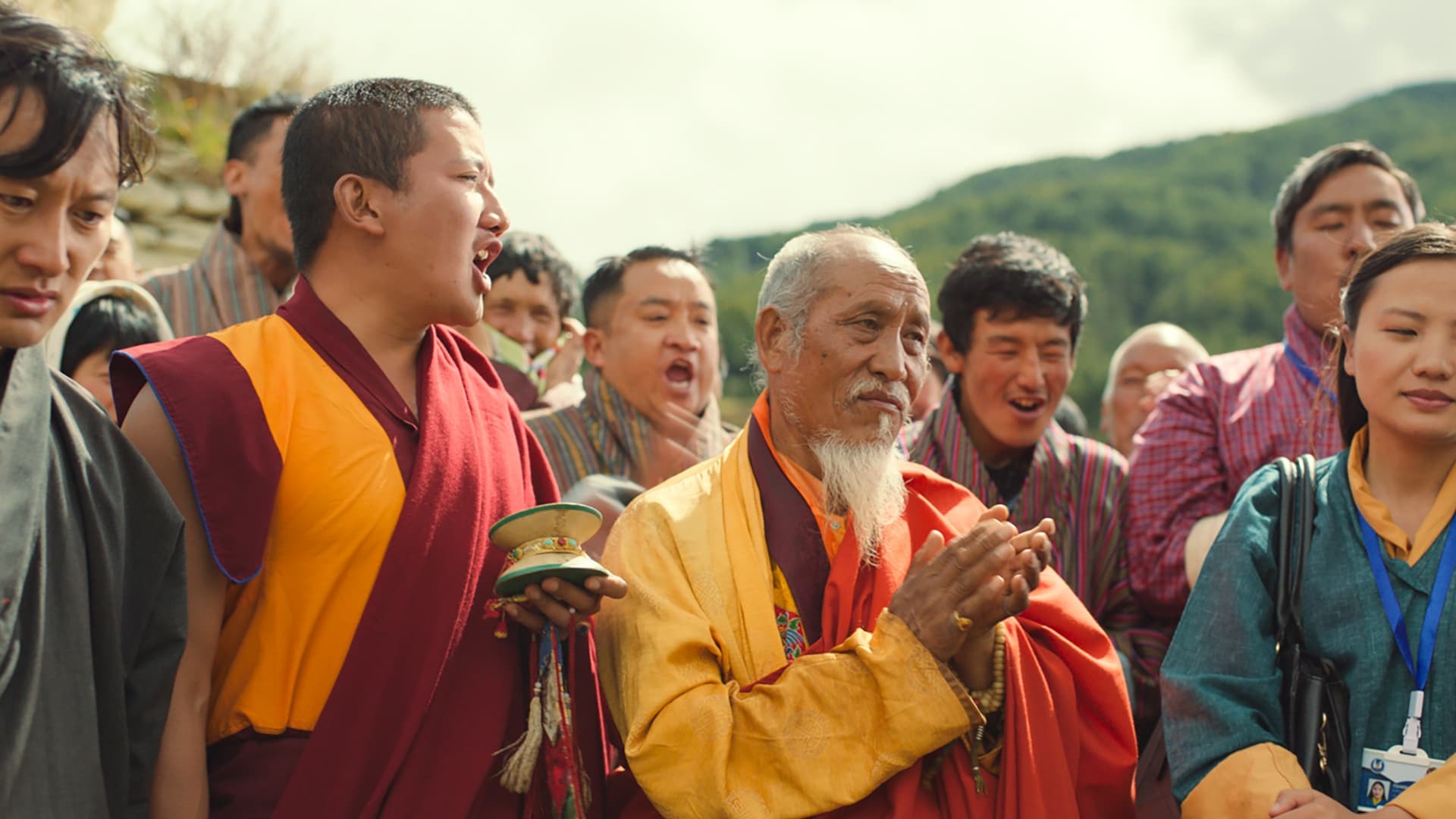
In the Best International Feature Oscar race, all films nominated by their countries are whittled down to a "shortlist" of twenty, a few months before the final 5 nominees are announced. Today's films were all on the shortlist but did not end up with a nomination. Their theatrical run in the USA was scheduled to coincide with their potential nomination, as Oscar nominees see a bump of interest in cinemas in the slow winter release schedule.
The Promised Land
Denmark, 2023, d. Nikolaj Arcel, 2h7m, ***, On VOD starting 2/23
It is Denmark in the 1700s. There are few prospects for an old, retired soldier of low birth, but Ludvig Kahlen has a plan. He made the rank of Captain after 25 years of persevering, as soldiers of noble birth were always ahead of him in line for promotion. Now, with the pension afforded him by his rank, he will curry favor with the King by settling Denmark's vast heath: a barren, rocky plain that resists agricultural cultivation. To grow anything, you must painstakingly remove all of the rocks from the ground, burn off the brush, let a rainy season come-and-go to turn the ashes into fertilizer, and then plant a crop stout enough to withstand the harsh climate and kickstart biodiversity.
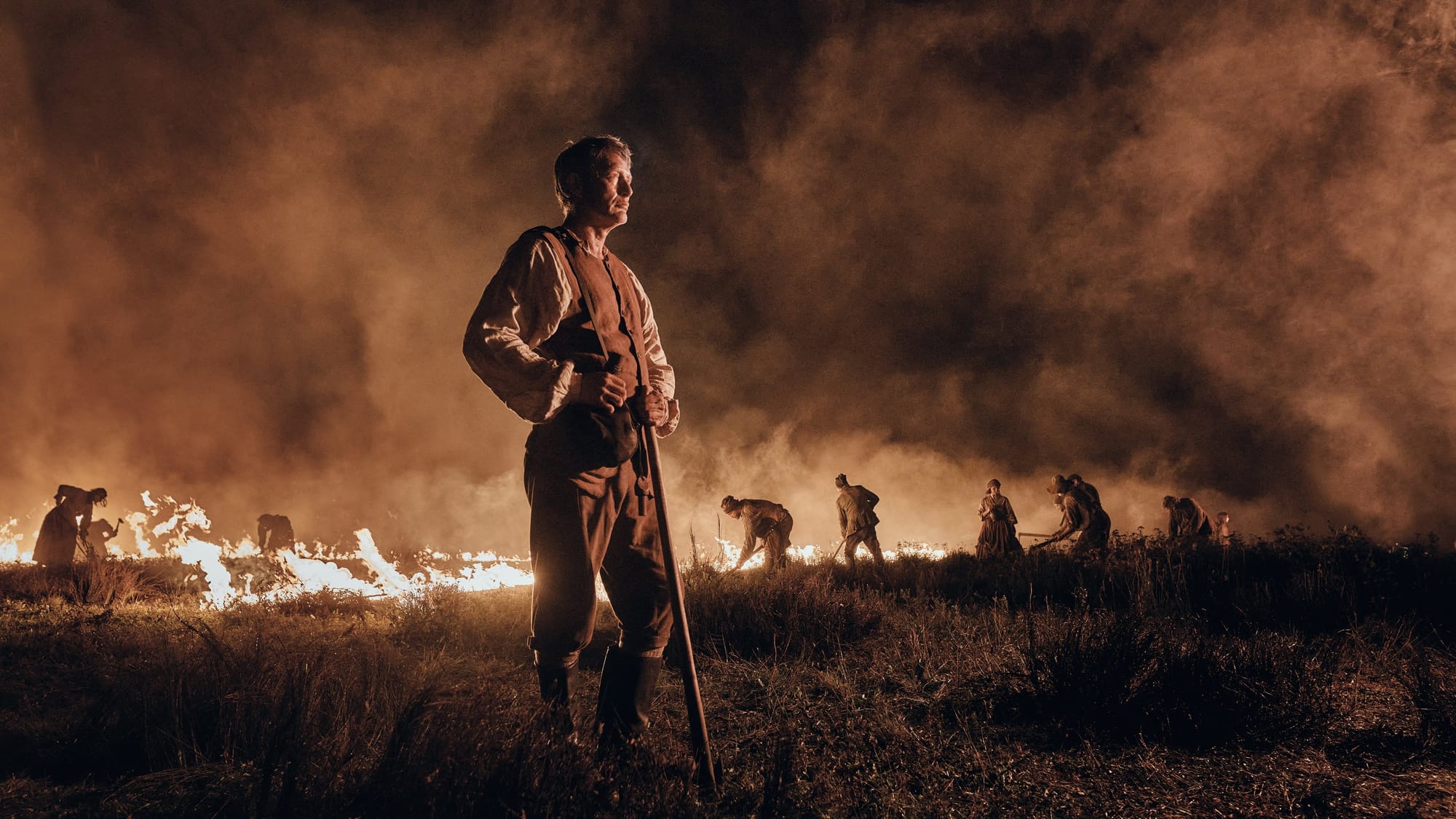
Captain Kahlen is something of a folk hero in Denmark's history, even though only a few facts are recorded about him. Danish author Ida Jessen wrote a speculative novel about him called "The Captain and Ann Barbara", which became a massive Danish bestseller. This book is the basis for this film, called The Bastard in Denmark and The Promised Land in English markets. These three very different titles say a lot about the varied ways his story has been interpreted.
Ida Jessen's book has yet to be published in English, but I found a few dozen pages of it here and the storytelling style is fascinating: matter-of-fact and full of procedural detail. Fully in the third person, she doesn't tell you what the characters are thinking, letting their actions speak for them. Nuances to the characters come about from a large number of actions possible in a novel; a film arguably needs to take a less subtle approach.
In The Promised Land, Mads Mikkelsen's Captain is more of an old cuss - dare I say, a bastard - to the people he hires to start his ranch. In both stories, a small family forms around him, but in the movie his emotional distance at the start is exaggerated as meanness. The story's primary villain, De Schinkel, the local nobleman, also has his cruelty exaggerated in the film, a petty tyrant straight out of Game of Thrones. It's clear from the title "The Bastard" that the filmmakers saw the primary struggle to be rooted in class. It was certainly a fact of life of the 1700s that we can hardly relate to now, but De Schinkel is less compelling than the Captain and Ann Barbara's basic fight for survival against the weather, banditry, dwindling food supplies, and workers suddenly quitting. The ending of the film left me cold, and I attribute this to the film's focus on De Schinkel; the film's climax is centered on him, but it is a false climax to Captain Kahlen's story.
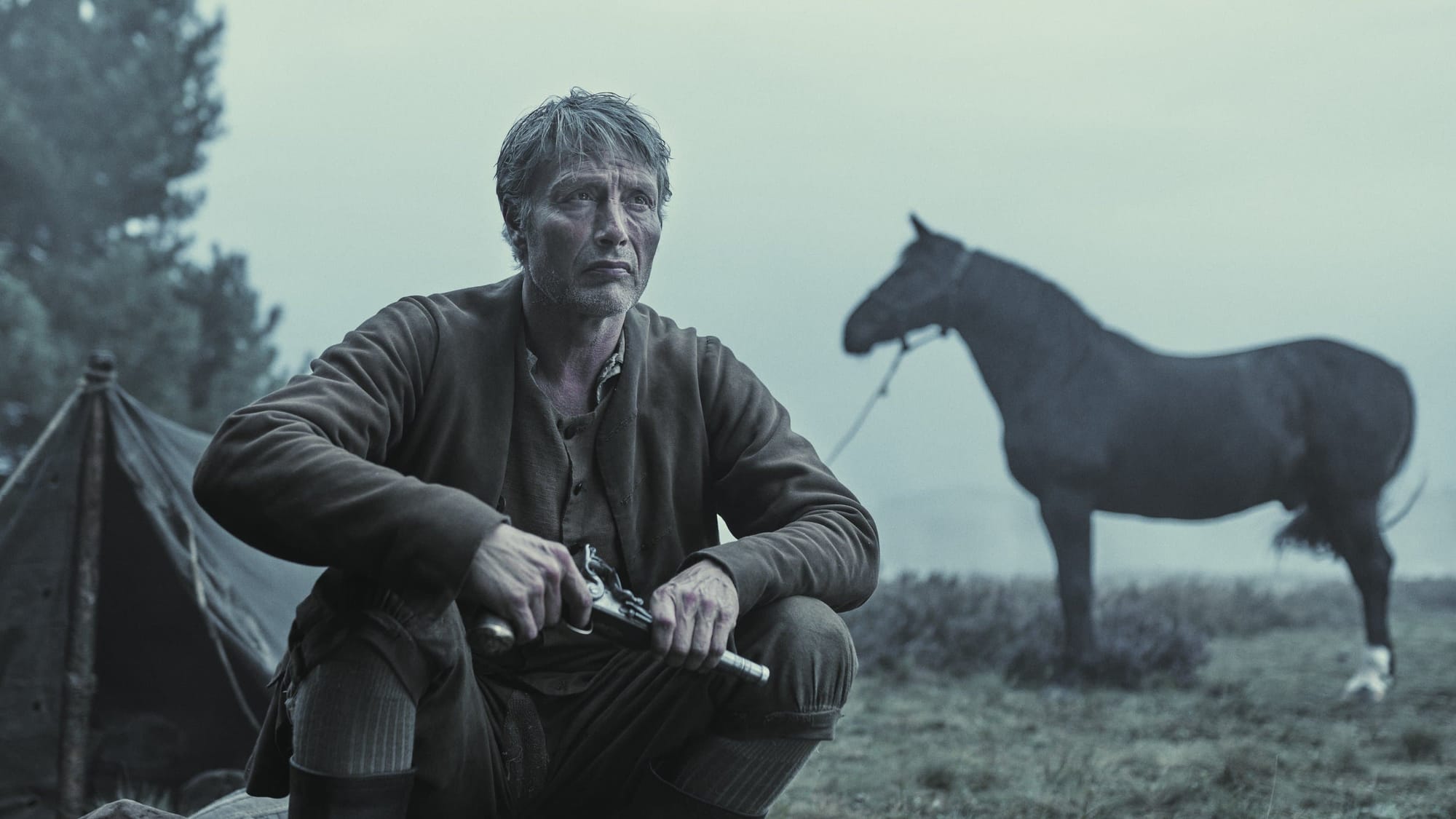
Still, there's a lot to admire in this "Danish western" version of the story. The cinematography is beautiful. Mads Mikkelsen is the lead. And there is a coarse-mannered Tatar girl named Anmai Mus, outcast by all, who imprints on the Captain as her father figure. She is so compelling as to make the whole movie worthwhile, and another reason I'd probably read the book too.
The Monk and the Gun
Bhutan, 2023, d. Pawo Choyning Dorji, 1h47m, ****, Not on VOD yet
In 1999, Bhutan became one of the last countries in the world to connect to the Internet and to television. Then, the long-serving King of Bhutan, who had been educated in the West, announced in 2006 that democracy was coming to the Kingdom. He would abdicate, a constitution would be written, and the country's first elections would take place.
Director Pawo Choyning Dorji's second film depicts with gentle humor the abrupt "modernization" of his country. The first television in a shop in the mountains packs the villagers in to sit and watch for hours on end; their first exposure to a "western Hero" is James Bond in Quantum of Solace.
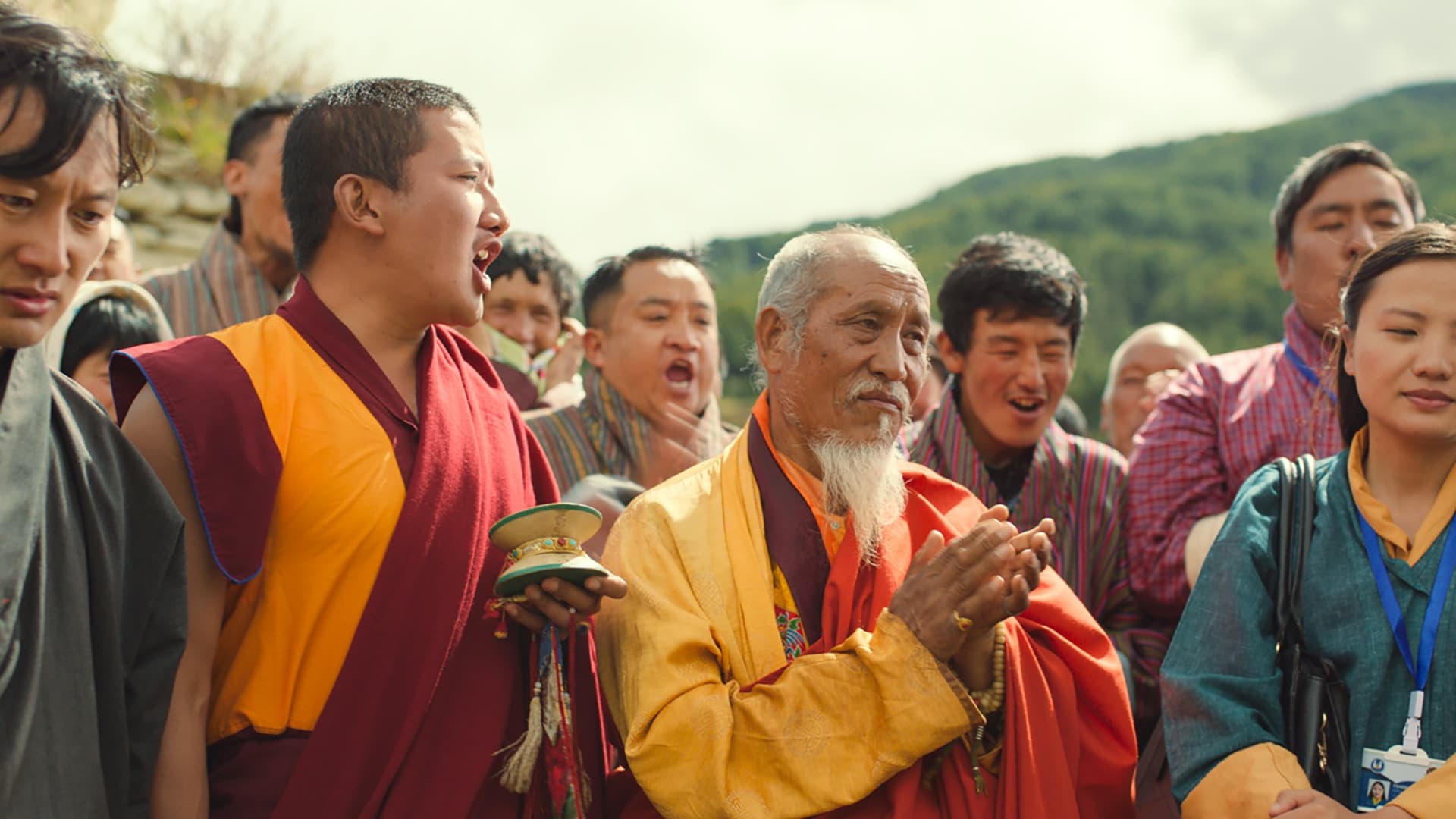
Since no one has ever voted before, the government announces it will be holding a mock election first to teach everyone how democracy works. Unfortunately, the word for election sounds like "a pig's disease" in Bhutanese. And filling out voter registration forms turns into a problem, when most villagers don't know their birthdays.
The villagers will vote for Blue, Yellow, or Red. The Red party will represent industrial development, the Blue party "freedom and equality", the Yellow party preservation of Bhutan's traditional values and culture. One villager lambasts the Blue party for bribing everyone with free food, while happily accepting a free TV from his candidate. The campaigning gets so heated, that the villagers start to question whether democracy is good for them. The Buddhist Bhutanese are supposed to be happy and peaceful; they are the country whose key metric is Gross National Happiness. After all this campaigning, the villagers snub both parties and vote overwhelmingly for Yellow, simply because it's the color associated with their King.
The Monk and the Gun is a leisurely-paced movie, and I understand why it didn't wind up receiving the Oscar nomination, but compared to many others on the list it feels more essential. Not only does Dorji craft a film which can introduce us to his culture, it casts a mirror back on us in the West and the incredible gravity that we have that instigates our way of life as the only acceptable "modern" one. It is no coincidence either that the titular gun turns out to be a priceless Civil War antique, and an American collector has come to retrieve it for a hefty sum, and a funny juxtaposition is made between the gun's value to Americans and a much different symbol that is valued in traditional Bhutanese culture.
Bonus Recommendation:
The Perfect Candidate
Saudi Arabia, 2019, d. Haifaa Al-Mansour, 1h44m, ***1/2, Streaming on Mubi and VOD
A woman doctor in Saudi Arabia faces a lot of challenges. She must still wear a face covering around male patients, many of whom don't respect her opinion and want only a male doctor to examine them. For the young and idealistic Maryam, practicing in her family's small town is exceptionally backwards to her. The road to the hospital is bisected by a wash that often floods, making it difficult for patients or doctors to get there.
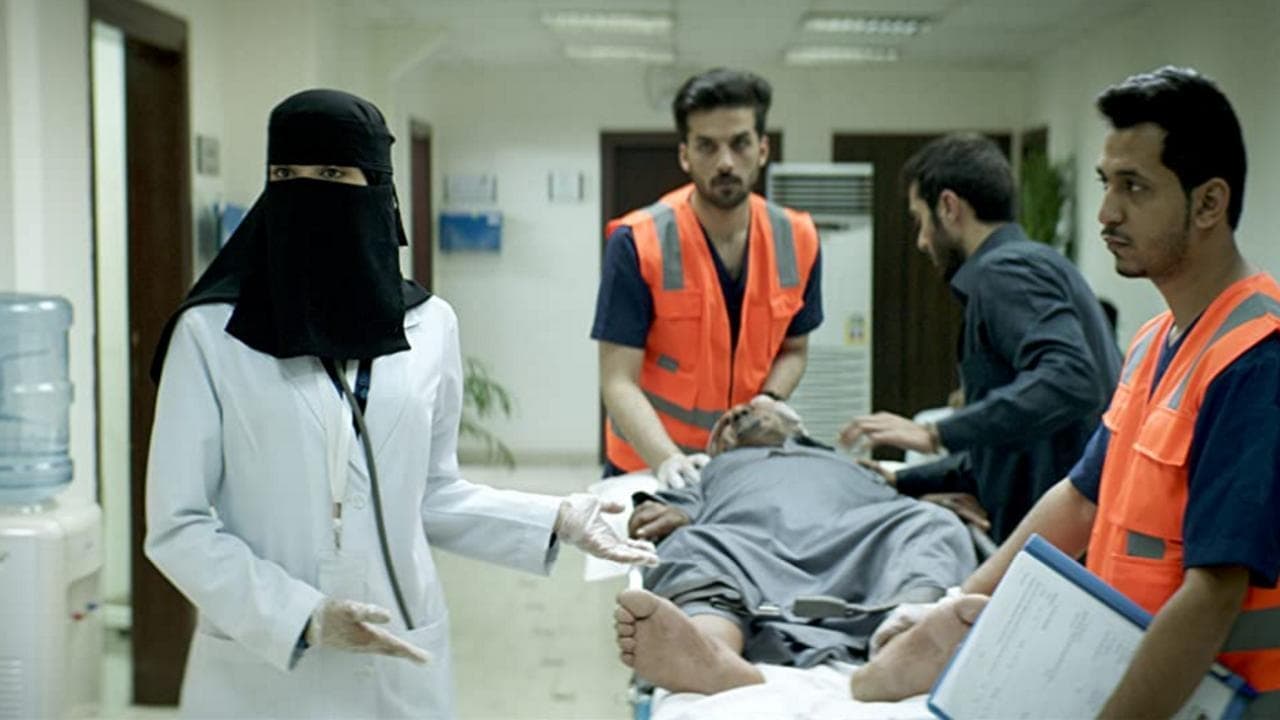
When she tries to solve the problem herself, the local town officials won't even see her unless she's a candidate in the coming election, so she registers as a candidate just to get in to see them. Before she can even lodge her complaint, they get excited because the government wants more women candidates to show the world that it is becoming more equitable. They suggest she runs on the platform that she will fix the road to the hospital.
Making campaign speeches to groups of women in her town is challenging, because most profess they are not interested; they can't defy their husbands by voting for someone different. Making campaign speeches to groups of men is even more challenging; she is not even allowed in the same room with them and must appear by TV broadcast from behind a curtain wall.
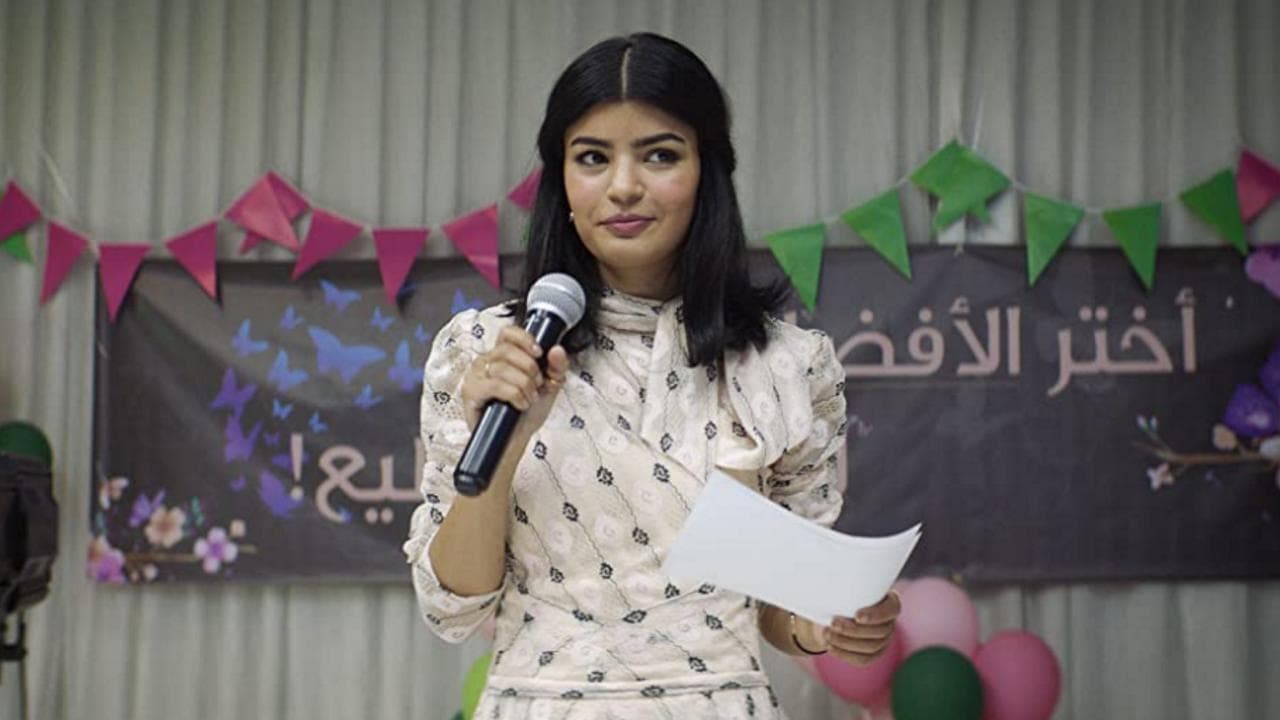
Despite the film's critical view of Saudi culture, Saudi Arabia selected it to be their Oscar nominee in 2019 (it did not wind up with a nomination). Whether or not the Saudi government's small nods toward greater inclusion, Al-Mansour's film is very frank at how little attitudes have actually changed in her patriarchal country. But the movie finds beauty in unexpected places: Dr. Maryam's father is a musician who is preoccupied with his own prospects of being able to perform in public for the first time in decades, and a widower who can't say no to his headstrong daughter because she reminds him of her mother. The movie also finds moments of humor in the situation, as when the Saudi girls look up American campaign videos on YouTube. The example they find is one you will recognize, and have you face-palming.
If the film ends in a somewhat predictable manner, it's really the only possible ending for a film that is trying to be realistic but hopeful. She doesn't win but by running Dr. Maryam has the opportunity to change minds, one at a time.